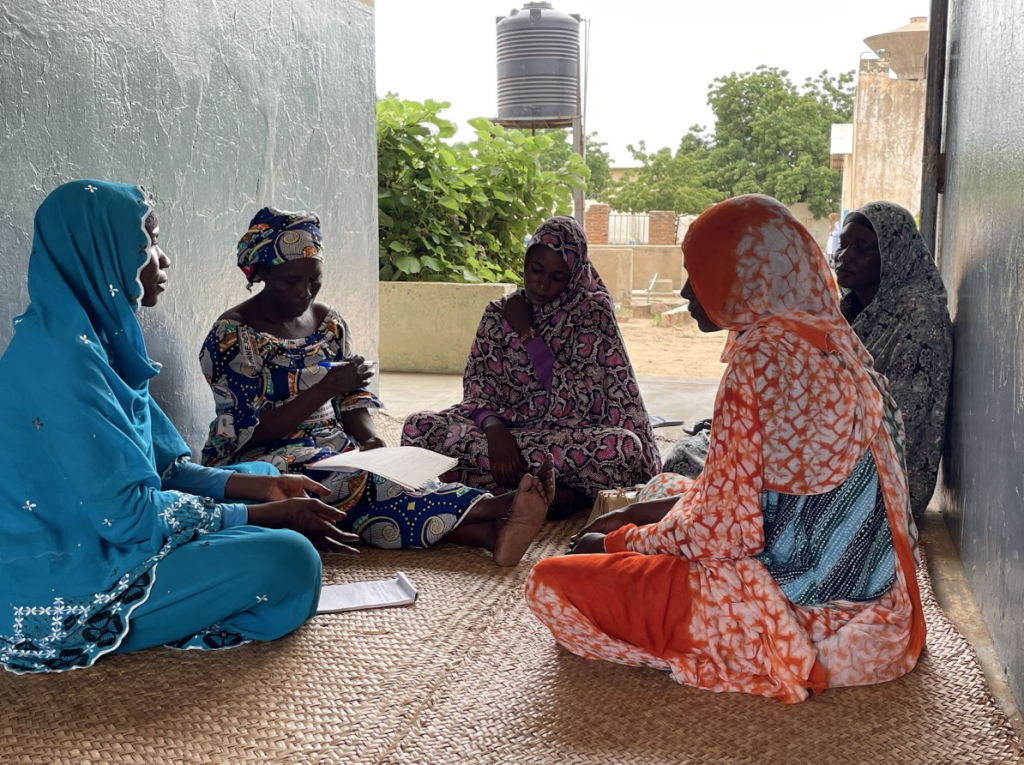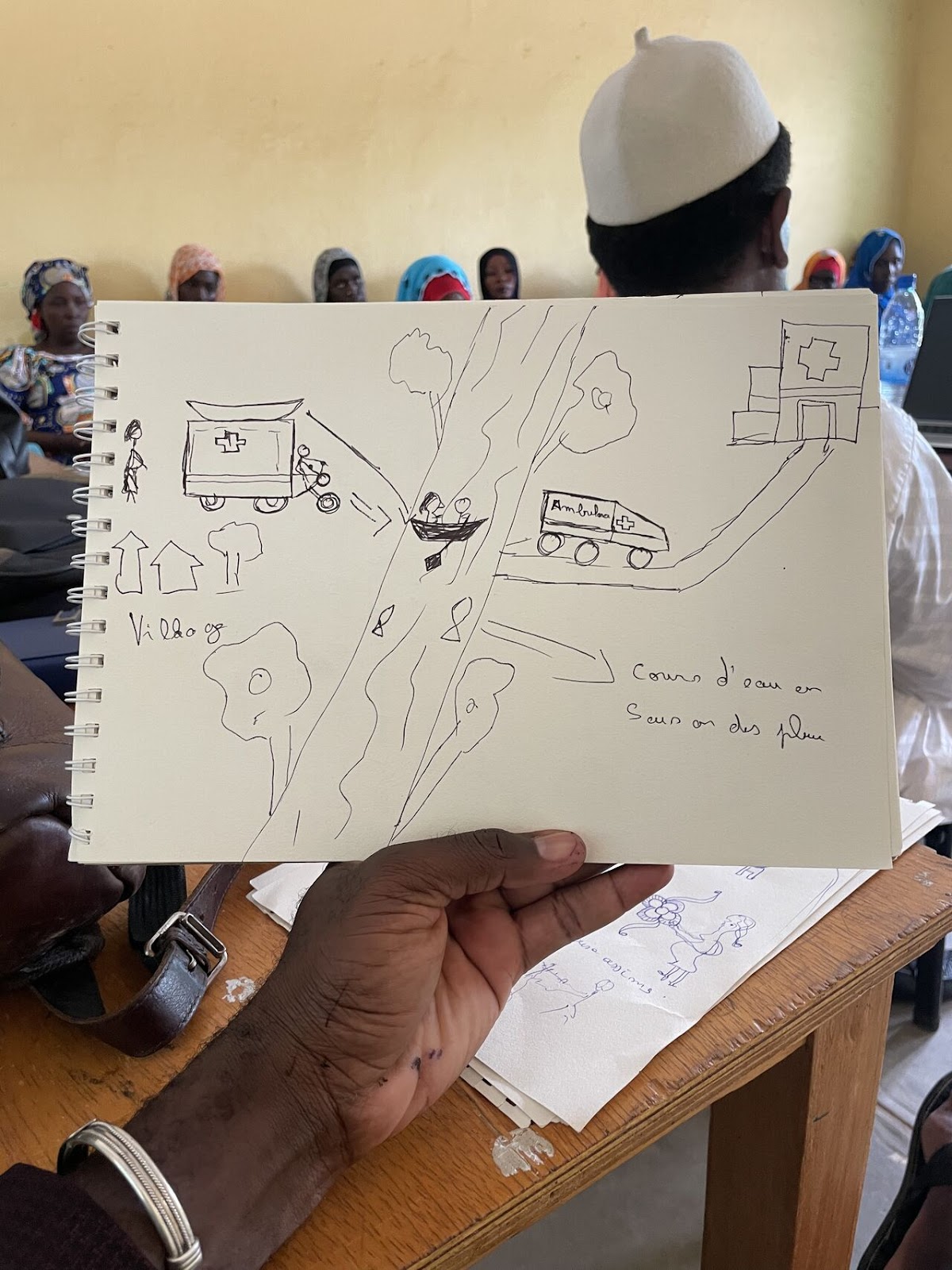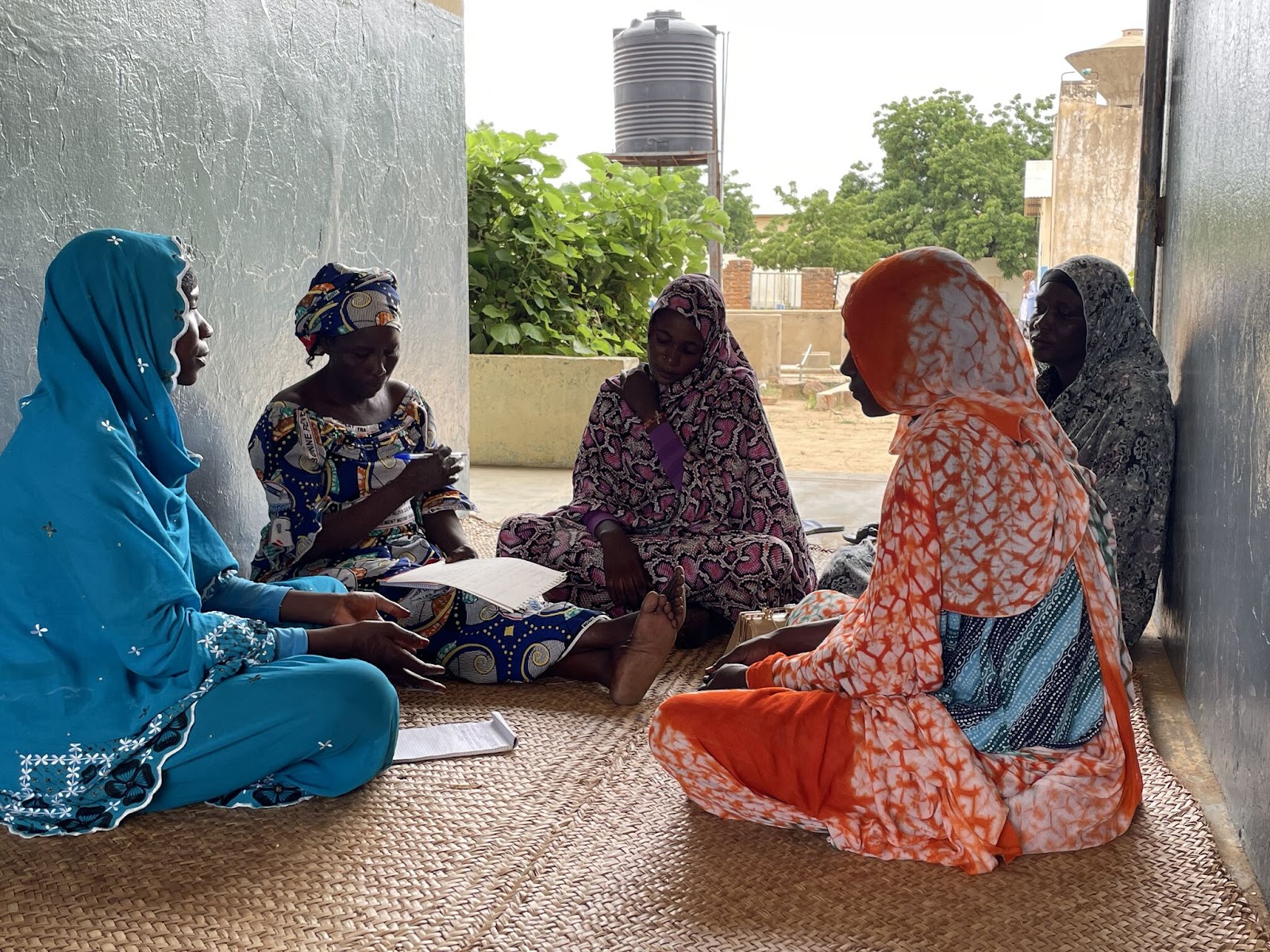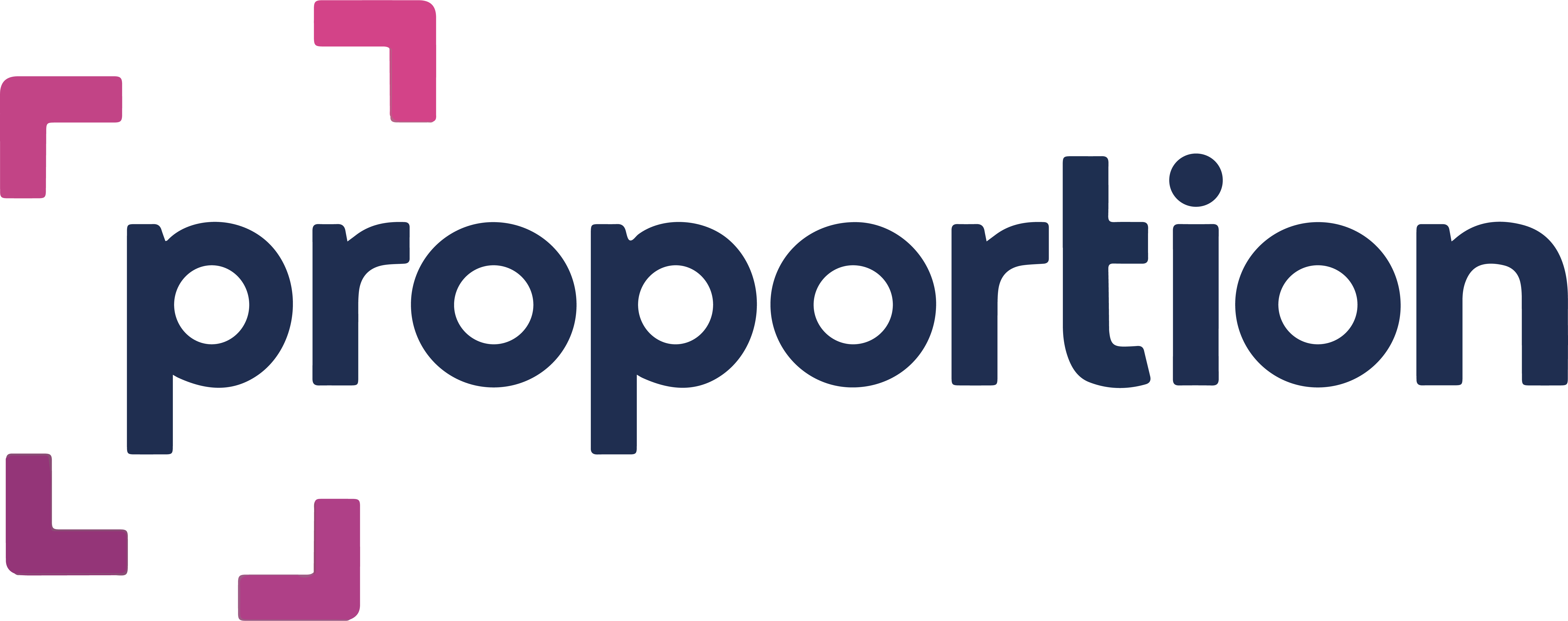
Improving Access to Maternal Healthcare in West and Central Africa
Project Timeline
Start Date: March 9, 2023
End Date: September 20, 2024
Situation
Countries like the Democratic Republic of the Congo (DRC), Chad, and Niger face significant challenges regarding access to maternal healthcare, especially in rural areas. Women often have to travel long distances to receive care, and obstetric emergencies lead to exorbitant costs, making care unaffordable for a large segment of the population. These conditions exacerbate inequalities in maternal health and increase the risks associated with childbirth.
Assignment
In these three countries, many rural women face obstetric emergencies requiring expensive specialized care. The combination of high costs and geographical barriers renders maternal health services inaccessible, leading to increased maternal and neonatal mortality rates.
Design Challenge:
How can we establish sustainable and inclusive community mechanisms to anticipate costs related to obstetric emergencies and enhance access to maternal healthcare services in rural communities of the DRC, Chad, and Niger?
Approach
- Training in Human-Centered Design (HCD) for Local Teams: In partnership with Proportion Global, local health teams and community organizations in the three countries received training in HCD to understand and apply user-centered design principles in their communities. This training strengthened their capacity to identify the specific needs and challenges faced by women regarding maternal health.
- HCD Research Conducted by Local Teams: Supported by Proportion Global, local teams conducted exploratory research to better understand community dynamics, perceptions around maternal healthcare, and financial barriers to accessing health services. This research collected qualitative data and deep insights into the daily realities of women in these regions.
- Insight Generation and Ideation: Proportion Global consolidated the research findings from the three countries (DRC, Chad, and Niger) to generate key insights. These insights served as the foundation for ideation sessions, where creative and innovative solutions were co-designed with local teams and community stakeholders.
Results
The ideation sessions, facilitated by Proportion Global in collaboration with local teams, generated innovative concepts tailored to the specific needs of communities in the DRC, Chad, and Niger. Below is a detailed overview of the results obtained:
1. Waiting Houses (DRC, Chad, and Niger)
Concept:
Creation of waiting houses for pregnant women located near healthcare facilities, enabling easy access to care during critical periods of pregnancy and childbirth.
Operational Details:
- Temporary Housing: These houses will provide temporary accommodation for pregnant women, particularly those from remote rural areas needing medical follow-up before and after delivery.
- Support and Guidance: Women will be supported by trained staff, including midwives and social workers, during their stay.
- Awareness and Education: Educational sessions on prenatal care, warning signs, and best practices for childbirth will be organized in these houses.
Expected Impact:
- Reduction of Complications: Decreased delays in accessing care during childbirth, which can reduce complications and improve outcomes for mothers and infants.
- Strengthening Community-Health Facility Links: Facilitating access to health services and encouraging women to seek consultations at health facilities.
2. Emergency Tricycle Transport (DRC, Chad, and Niger)
Concept:
Establishment of an emergency transport service using tricycles (three-wheeled vehicles) to facilitate access to healthcare for pregnant women, especially during obstetric emergencies.
Operational Details:
- Community Transport Service: Tricycles will be managed by trained community members, providing quick transport to healthcare facilities during unexpected deliveries or complications.
- Affordable Pricing: The service will be designed to be financially accessible, with subsidized rates or flexible payment options for low-income families.
- Coordination with Health Services: A communication system will be established to alert transporters in emergencies, ensuring a rapid response.
Expected Impact:
- Improved Emergency Response: Rapid access to emergency care, reducing the risks of life-threatening complications during childbirth.
- Support for Vulnerable Women: Ensuring that women, particularly those living in isolated areas, can access care without fear of high costs.

3. Community Farm (Champ Commun – Niger)
Concept:
A community farm cultivated by women to generate income for financing maternal healthcare. The idea is to create a self-sustaining mechanism that ensures coverage of maternity-related medical expenses while enhancing women’s economic independence.
Operational Details:
- Collective Management: Women in the community will come together to cultivate a farm of food and cash crops. The profits generated will be allocated to a fund dedicated to maternal healthcare.
- Access to Care: When a woman needs maternal healthcare, she can access this fund to cover consultation, delivery, or transport costs to healthcare facilities.
- Training and Awareness: Training sessions will be organized to teach women agricultural and financial management skills, ensuring the project’s sustainability.
Expected Impact:
- Reduction of Financial Barriers: Decreased costs associated with childbirth and delays in accessing care.
- Economic Empowerment: Increased economic power of women within the community.
4. Community Tontine (DRC and Chad)
Concept:
Implementation of a rotating tontine system specifically focused on obstetric emergencies. This mechanism allows members to contribute regularly to create a fund accessible in urgent situations.
Operational Details:
- Monthly Contributions: Women in the community contribute a small amount each month, creating a collective fund.
- Emergency Fund Access: In the event of a high-risk pregnancy or obstetric emergency, members can request quick access to the funds for medical and transport costs.
- Health Support: Awareness campaigns will be organized to explain the importance of maternal health and encourage women’s participation in the tontine.
Expected Impact:Improved Access to Care: Quick access to financial resources in emergencies, reducing response times for care.
Community Solidarity: Strengthening social ties and solidarity among women, fostering a supportive environment for maternal health.
5. Community Resource Centers (DRC, Chad, and Niger)
Concept:
Creation of community resource centers dedicated to education and information on maternal and child health. These centers provide resources, advice, and support for women.
Operational Details:
Psychological Support: Establishment of support groups to share experiences and advice.
Workshops and Training: Organization of workshops on prenatal care, warning signs during pregnancy, and reproductive health rights.
Information and Awareness: Distribution of brochures and educational materials on maternal care, nutrition, and available services.
Expected Impact:
- Skill Strengthening: Increased knowledge among women regarding maternal health, leading to informed decisions about their care.
- Reduction of Stigmas: Creating a safe space where women can openly discuss their concerns and health needs.

This project was funded by The World Bank, commissioned by Design Innovation Group and Proportion Global, and performed by Oumar, a member of the Proportion Global community. If you’ve enjoyed reading this case and want to dive deeper, we’d love to hear from you and we will connect you with relevant designers like Oumar, who worked on this project Contact Us

